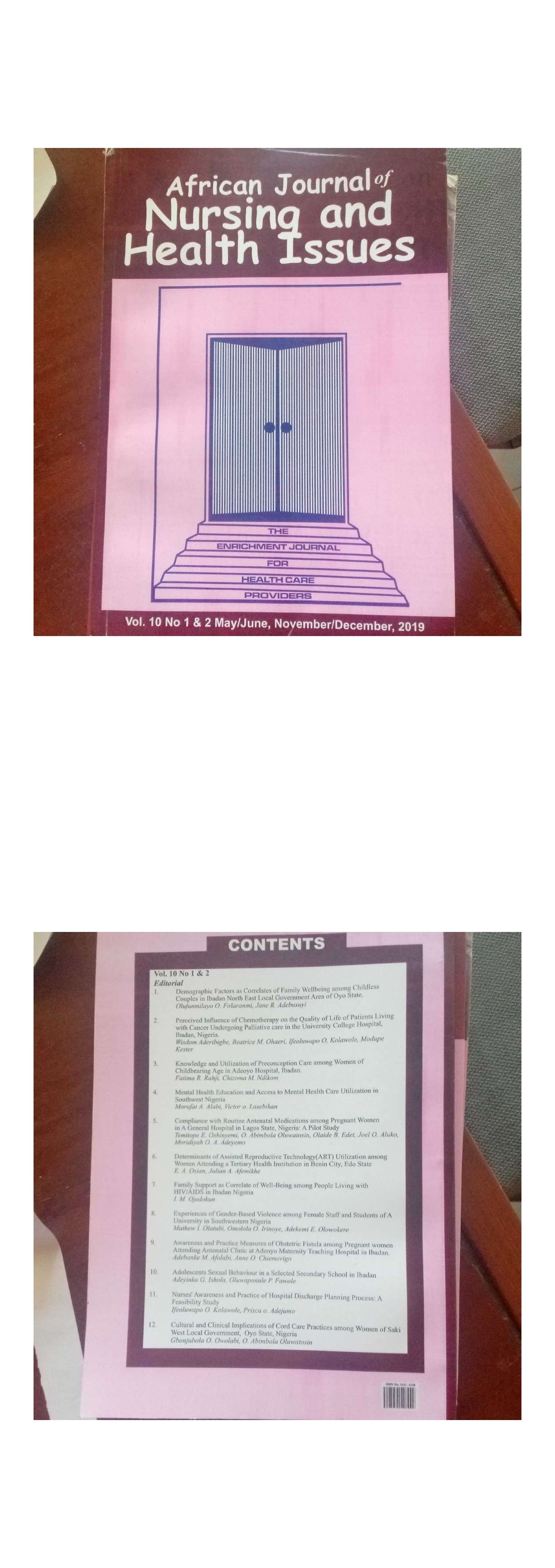
ADOLESCENTS’ SEXUAL BEHAVIOUR IN A SELECTED SECONDARY SCHOOL IN IBADAN
Introduction: Nigeria is one of the fifteen “high alert” countries with high mortality rates in 2017, and this maternal mortality risk is highest among adolescents under nineteen years of age. Parents, teachers, and concerned adults are becoming disturbed by the increasing incidence of teenage pregnancies, sexually transmitted infections, abortion, and death. It is believed that with information on sex education, adolescents would be better prepared against unguarded sexual exploration, behavior, and consequential hazards.
Aim: The aim of the study was to evaluate the adolescents’ sexual behaviour in a selected secondary school in Ibadan, Nigeria.
Methods: A descriptive research design using an interviewer-administered questionnaire was used to elicit information on knowledge and attitude towards sexuality education and sexual behavior. Two hundred and seventy-three (273) senior secondary school students from the selected secondary schools were selected randomly for the study. Both descriptive and inferential statistical tests were employed in analyzing the data collected for this study. Two hundred and seventy-three (273) questionnaires were retrieved and analyzed using tables, charts, percentages, analysis of variance (ANOVA), and Pearson correlation. Ethical clearance was secured from the ethics committee of the University of Ibadan/University College Hospital community.
Results: The mean age of respondents was 15.27±3.27 years. Findings from the study revealed that the majority (77.3%) of the respondents had good knowledge of sexuality education. Also, the respondents’ sexual behavior was influenced by their knowledge of sexuality education [χ2 = 16.69, df = 4, p <0.002]. This showed that the higher the knowledge, the better the sexual behaviour of the students.
Conclusion: It is recommended that comprehensive sexuality education guide and direct adolescents toward healthy sexual behaviour.
